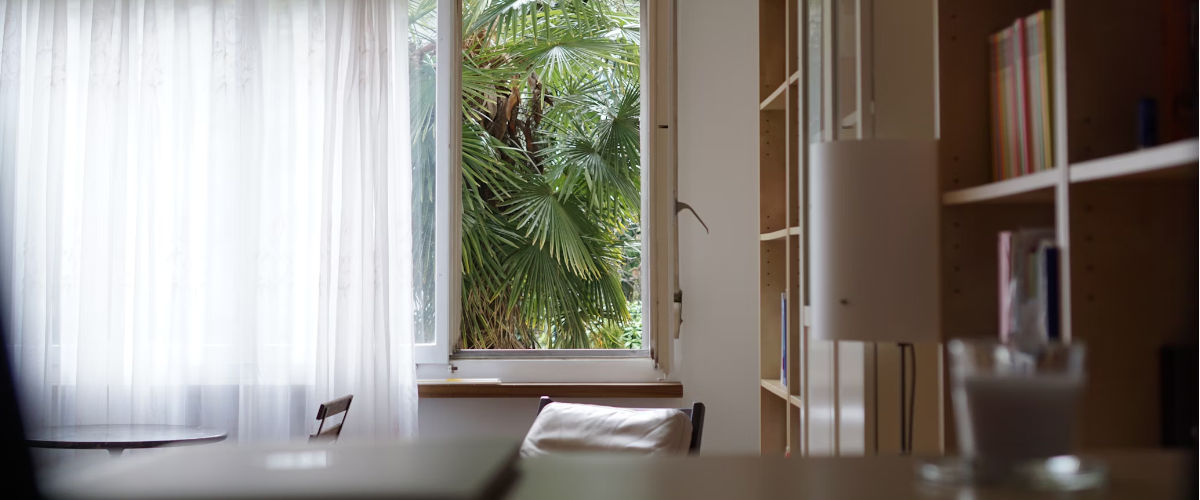
Choosing windows may seem like a simple task but it is not. Not only because there are numerous possibilities in terms of its design but because the thermal and acoustic insulation of our home will depend, among many other things, on its choice. Choosing the right window will contribute to the practicality and habitability of a space, which is why we believe that you should know all the types of windows that exist before making any decisions.
The climatic conditions of the place where we live as well as the size and distribution of each room are key factors when it comes to choose the right window for a certain space. And for this it is important to assess both the window material, the glazing and the type of closure. Shall we start?
Types of windows according to their material
Nowadays, the profiles of most of the windows installed in our country are manufactured in aluminum and/or PVC, although wooden windows continue to be an option valued by many. The thermal and acoustic insulation of the windows, as well as their maintenance and durability, are determined by the material, so the decision is anything but superficial.
- Aluminum: Aluminum is a lightweight material that stands out for its strength and durability. It does not rust and provides numerous aesthetic possibilities. Additionally, together with the glass, it provides an airtight seal that maintains stable air conditioning inside the home.
- PVC: It does not rust, is resistant and very durable, as well as a good term and acoustic insulator. Its maintenance is also very simple, which has made this material one of the most in demand. Its advantages are obvious, but its price is higher than that of aluminum.
- Wood: It is an excellent insulator term, but outdoors it requires a lot of maintenance and its useful life is relatively short. Its use is less popular today, since there are other materials that can imitate its aesthetics.
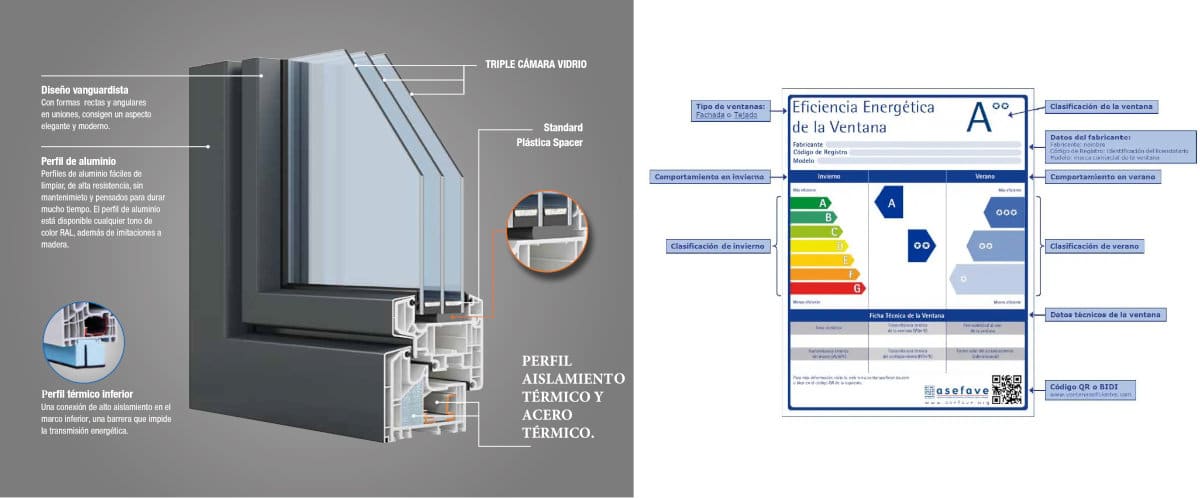
Types of windows according to their glass
Profiles and glazing affect the insulation of a window. And just as in the past single glass was used in the windows, today regulations require installing double glazing, much more efficient, in new constructions. Let's talk about this glazing and others:
- Single crystal: It is the most basic and the least insulating and is mainly found in older windows.
- Double glazing: The most installed system, composed of two glasses separated by an air or gas chamber to offer good thermal and acoustic insulation.
- Laminated glass: It is an economical and safe option, which consists of two or more sheets of glass joined by a plastic film.
- Glass with sun protection: Reduces the entry of heat and sunlight into the home and can be reflective or low-emissivity.
- Tempered glass: A very resistant and durable glass that offers great security and has a peculiarity: breaking into small pieces without sharp edges.
Types of windows according to their closure
The type of opening and closing of the window is key to the result of the interior design. It is a very important choice, since it affects the insulation, the useful space of the room and the level of ventilation. And there is no shortage of options to choose from.
Fixed Windows
They are windows that cannot be opened and are used to provide light, in places where ventilation is not needed or where other types of windows facilitate this. Many large panoramic windows with fixed ones to also offer greater security.

Openable or folding windows
Openable windows with internal opening are the most common in Spanish homes. They are characterized by a vertical oscillation axis located on the side of the frame and window sash, which allows it to be opened inwards.
This type of window provides high levels of sound and thermal insulation when closed and also maximum ventilation, but they also have a negative part: they take up more space than others when they are open. As for maintenance, it is very easy to clean them.
Swing windows
This type of window usually opens at the top around a horizontal lower axis and allows ventilation of the interior without taking up little space. Ventilation is less than with practicable ones and they are more difficult to clean, but they are safe and a great choice in small spaces that need ventilation.
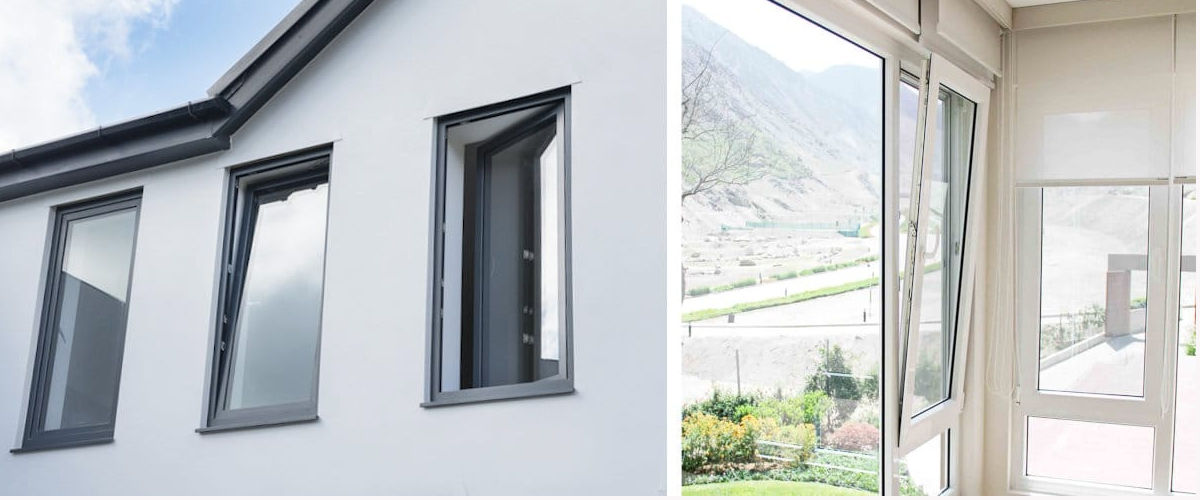
Tilt-and-turn windows
Nowadays they are in high demand since combine the advantages of casement and swing windows. In fact, they have two positions: as a folding window or a swing window with a slight inclination inwards. In addition, they provide extra security since they can be left open to ventilate without the risk of falling in case there are minors or pets nearby.
Sliding Windows
The sliding windows They open by moving horizontally without invading the interior space so they are perfect for small spaces or rooms limited by their furniture. They generally have between two and four leaves that move along rails.
The insulation they provide is less In the case of folding and oscillating ones, although this has improved significantly, they are not recommended in places with extreme temperatures.
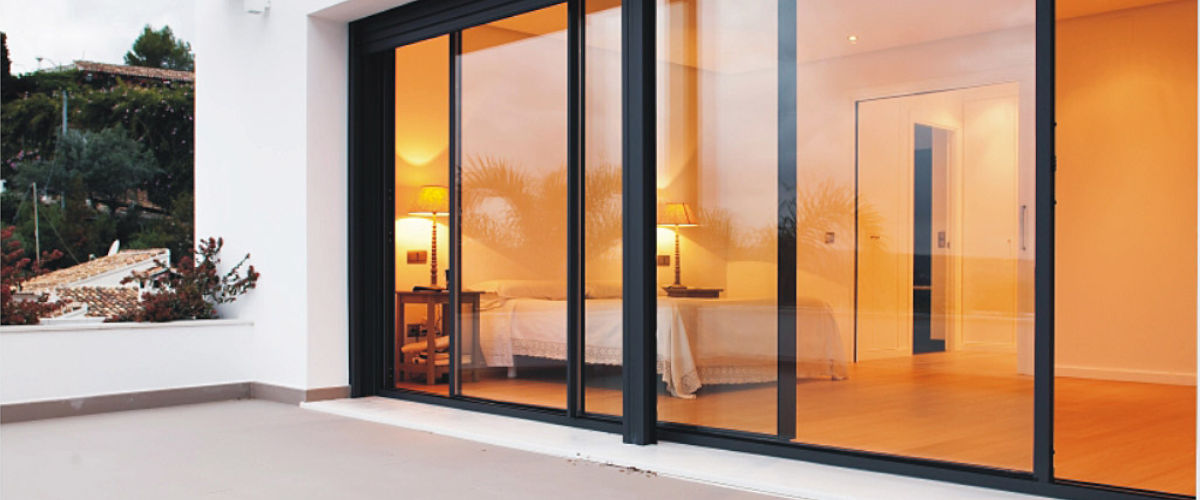
pivot windows
This type of window is mainly installed in offices, attics and roofs. They rotate around a central horizontal axis, so that they facilitate a 180º rotation around the axis, the leaves opening half towards the inside and the other half towards the outside.
They are easy to clean due to their great accessibility from the inside and allow regulate the opening space which can be very useful for ventilation. They also offer a very wide field of vision and give a unique touch to the space in which they are installed.
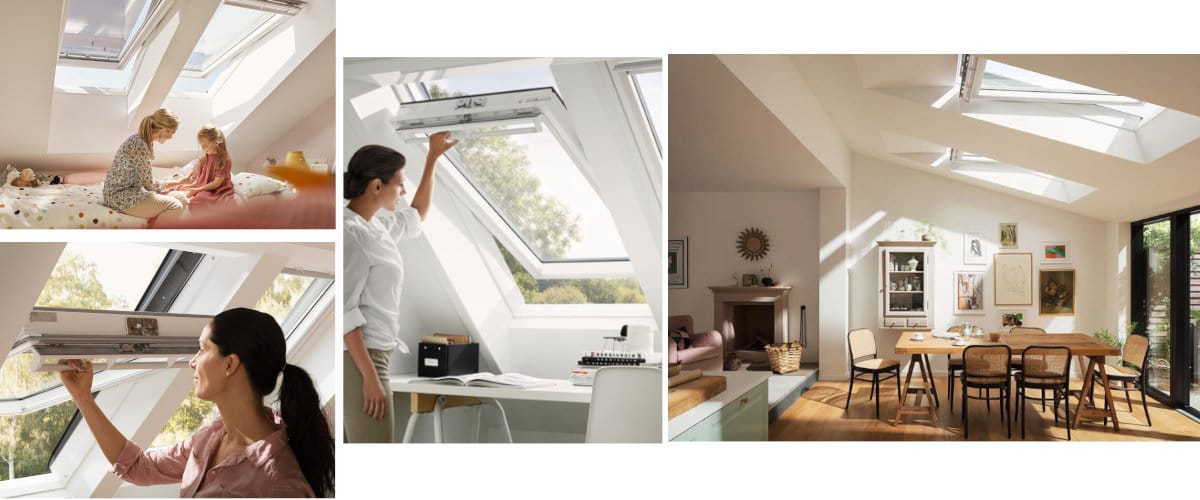
Rotating roof windows Velux
folding windows
They are sliding windows whose leaves that fold in on themselves in the shape of an accordion or bellows from left to right and vice versa, facilitating a total opening. It is an ideal solution to save space and connect outdoor and indoor spaces. That is why they are widely used on terraces, balconies or patios.